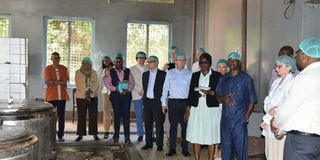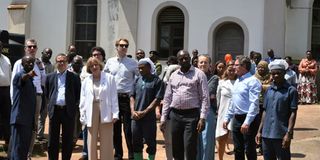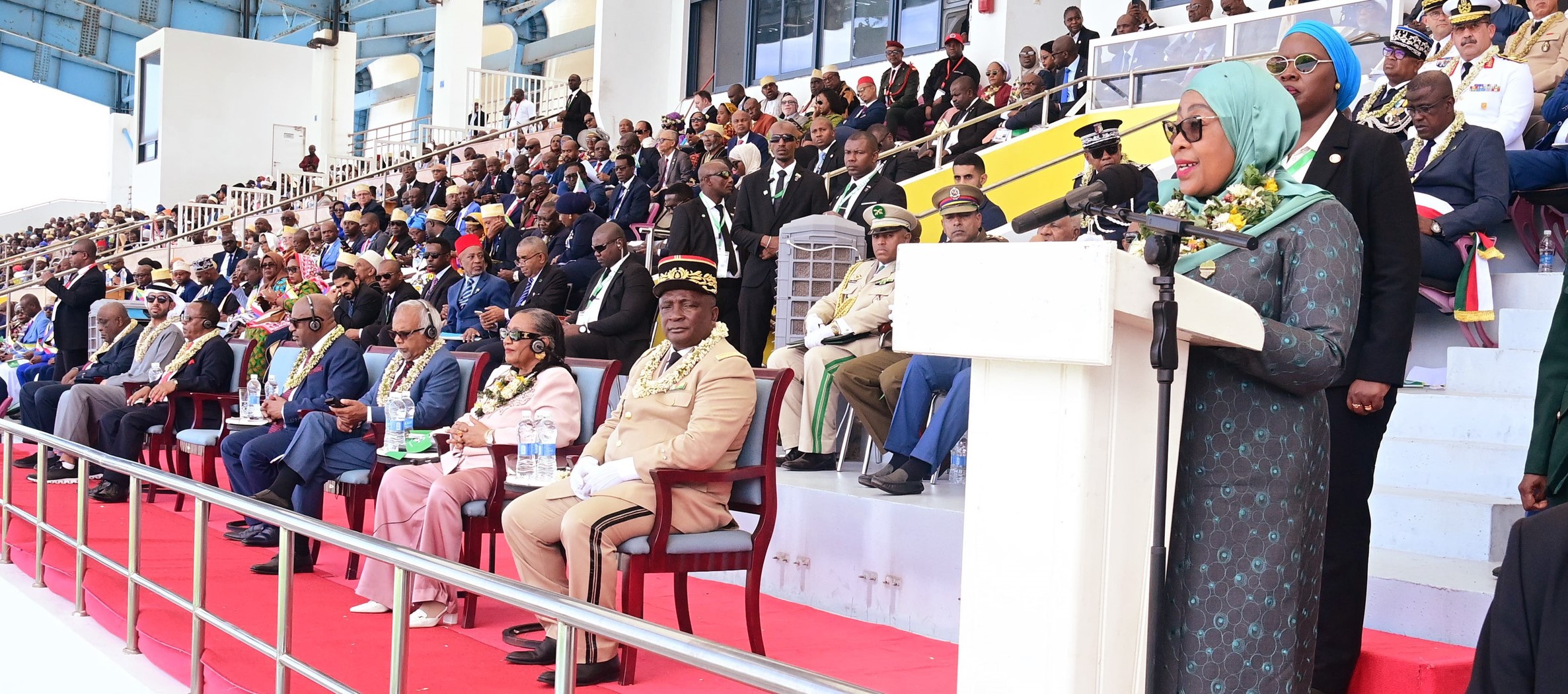Seeing green: Sustainability lessons from our trip to Morogoro

What you need to know:
- These visits allow us to engage with stakeholders we collaborate with and witness the impact of Team Europe-funded initiatives (EU, its Member States, and Institutions) in Tanzania. Our focus is on observing the direct impact of the projects we support.
Last week, in our capacity as EU Ambassadors, we had the opportunity to visit Morogoro as part of our yearly European Union (EU) Heads of Mission visit to Tanzania’s regions. This followed last year’s visit to the lake zone region of Mwanza.
These visits allow us to engage with stakeholders we collaborate with and witness the impact of Team Europe-funded initiatives (EU, its Member States, and Institutions) in Tanzania. Our focus is on observing the direct impact of the projects we support.
Morogoro, renowned for its scenic beauty with towering mountains and lush landscapes, plays a significant role in Tanzania’s agricultural sector. It also has the potential to be at the forefront of the green transformation in Tanzania—a theme that resonated throughout our visit.
Team Europe has ambitious goals for a greener future. The EU through its Green Deal aims to make Europe climate-neutral by 2050. However, these goals are not just for Europe—they are a shared vision, one that Team Europe extends to partners around the world, including Tanzania.
During our visit to Morogoro, we visited the Sokoine University of Agriculture (SUA), home to the National Carbon Monitoring Centre (NCMC). It was enlightening to learn how this institution, with budgetary support from the EU, is central to Tanzania’s efforts for its climate transition. The NCMC’s mandate is to monitor Tanzania’s commitment to decarbonisation. With thanks to EU and other Development Partner support, its tracking of carbon emissions has expanded from forest carbon stocks to all critical sectors in the fight against climate change.
Team Europe is also a significant supporter of Tanzania’s efforts to promote sustainable cooking. In Morogoro, we attended the launch of a project under the Integrated Approach to Sustainable Cooking Solutions Programme—the largest clean cooking program in Africa, with Sh83 billion in support from the EU (30 million euros).
This particular project, with Sh5.5 billion in EU finance (2 million euros), implemented by Helvetas Swiss Intercooperation, will promote sustainable forest management and renewable energy through community empowerment. Following the official launch, we also visited exhibitions of clean cooking technologies and were impressed by the varied existing innovations in this area.
The urgency for such projects has become clearer given recent climate-related disasters in Tanzania. Recent heavy rains caused by El Niño have resulted in floods and landslides that have claimed the lives of at least 155 people and affected at least 200,000 people and more than 51,000 households. These events underscore the need for robust sustainability and climate resilience strategies.

Tanzania’s alarming deforestation rate further amplifies the need for action. According to the UN, the country lost nearly 470,000 hectares (1.16 million acres) of forest each year between 2015 and 2020. Morogoro’s situation is particularly concerning, with a low forest regeneration rate of about 18 percent. Mr Adam Malima, the Regional Commissioner, himself emphasised the very real possibility of Morogoro transforming into an arid desert at the current pace of deforestation and without intervention.
Thankfully, there are also inspiring examples of change. The Morogoro Teacher’s College, which we also visited, stands out as a beacon of hope. Since 2019, they college has transitioned from firewood to liquefied petroleum gas (LPG) and recently included biomass briquettes as another cost-effective and eco-friendly fuel source for cooking. This shift demonstrates the positive impact that is achievable with a clear commitment to a greener future. We hope it inspires wider adoption by other institutions.
Engaging young people is essential for driving the green agenda forward. After all, they are the future policymakers. To that end, we hosted a lively debate with over 200 young activists and students from SUA.
During, the debate, we recognised the importance of working with youth and called upon young people to take the lead and be the voice of people’s demands to address the negative consequences of climate change. The youth stressed the need for financial support, inclusion in project implementation, and initiatives that equip them with valuable skills and understanding of green opportunities.
These kinds of debate mirror the strong participatory culture promoted by the EU – and we hope to participate in and witness similar discussions in other in Tanzanian universities as well.
At SUA our visit also included a fascinating stop at the Apopo Centre at SUA.
This unique initiative trains African pouched rats to detect landmines and tuberculosis. These remarkable creatures, with their exceptional sense of smell, can clear a 400-square-meter area of landmines in 20 minutes – a task that would take a metal detector four days! They are also assisting in detecting tuberculosis, with a single rat analysing 100 samples in a process that would take a technician four days using traditional methods.
Moreover, trials are underway to train rats to detect specific chemicals, potentially revolutionising cargo inspections. The Apopo Training Centre, primarily operational in Tanzania, is supported by the embassies of Belgium and Poland.
Finally, we learned about two other projects within SUA. The Finnish-funded GEOICT4e project enhances geospatial and ICT education, boosting graduates’ employability.
The French-funded Innoversity Project focuses on equipping Tanzania’s Higher Education Institutions with tools to integrate innovation and entrepreneurship into their curriculum, addressing the skills gap and fostering youth employment.
Our time in Morogoro served as a reminder of the challenges and opportunities Tanzania faces on its path to a greener future.
As Team Europe we are committed to being a strong partner, supporting initiatives like these that promote sustainability, empower communities, and inspire young leaders to build a greener Tanzania.
It is a mission we are all proud to be a part of, and one that perfectly embodies the spirit of Europe Day – a day of celebrating peace, unity, and a shared vision for a better future, which we are celebrating this month.
This article was written by the ambassadors of the European Union and of the European Union member states resident in Tanzania



